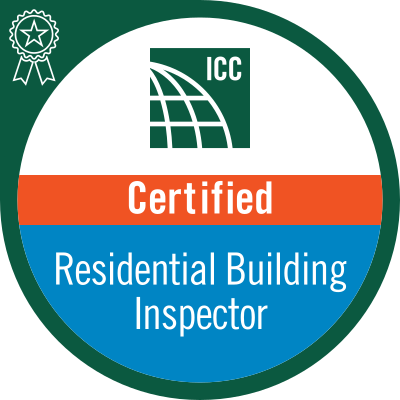What is a home inspection?
A home inspection is a visual examination of the home’s major structure, systems and components that are visible and safely accessible. The inspector should substantially adhere to a standards of practice that outlines what should be covered during a general home inspection, as well as what is excluded. Some inspectors may strictly follow the standards of practice, while others may exceed the standards and inspect other items, or perform a more detailed inspection. Whatever the inspector includes in his or her inspection should be discussed prior to the inspection – this is known as the scope of work. The inspector should be able to provide you with a copy or online link to the standards of practice they follow. The inspector should provide you with a written report, which may include photos and/or recommendations, of his or her findings of the inspection. Read InterNACHI’s Standards of Practice to find out what is typically included and excluded in a home inspection.
Why should I get a home inspection?
 Buying a home is typically the biggest investment you will ever make, so it’s important to get a home inspection because the inspector should be able to discover and document defects that may or may not be obvious to you as a prospective buyer. Such defects can range from simple replacements or repairs, to severe damage or safety and health concerns. Additionally, most mortgage companies require a home inspection on a property before approving the home loan. Read InterNACHI’s Top 10 Reasons to Get a Home Inspection.
Buying a home is typically the biggest investment you will ever make, so it’s important to get a home inspection because the inspector should be able to discover and document defects that may or may not be obvious to you as a prospective buyer. Such defects can range from simple replacements or repairs, to severe damage or safety and health concerns. Additionally, most mortgage companies require a home inspection on a property before approving the home loan. Read InterNACHI’s Top 10 Reasons to Get a Home Inspection.
Where can I find a home inspector in my area?
There are several ways to find a home inspector. You may be able to find one online or in local ads. You may also find inspectors’ brochures by visiting a real estate office. There is no single method that is superior when it comes to finding an inspector who’s right for your inspection needs.
Below are some online resources for finding a home inspector near you:
How can I be sure that a home inspector is qualified?
It is important to choose a home inspector who is qualified and holds a license or certification in the field. Many jurisdictions do not regulate home inspections, meaning that anyone could call themselves a home inspector. However, just because someone performs home inspections doesn’t mean that they’re actually qualified to do so. If you are buying or selling a home in an unregulated jurisdiction, make sure to look for a home inspector with the proper certifications. If you are located in a state or province that does require licensing of home inspectors, you should hire only a licensed professional.
Contact your state by phone or online to find out whether they license home inspectors, and what qualifications they’re required to have. License numbers in licensing states may vary in appearance, but you should be able to independently verify it. If your state doesn’t require licensing, find out what qualifications and certifications your home inspector has. The International Association of Certified Home Inspectors – InterNACHI® – is the largest and most trusted home inspector association in the world. Its members undergo rigorous training to become Certified Professional Inspectors (CPIs)®. They also follow a Standards of Practice and adhere to a Code of Ethics. Also, the Master Inspector Certification Board grants qualified inspectors the title of Certified Master Inspector® (CMI®), which is the highest professional designation in the inspection industry. Find out if your inspector is licensed and/or a CPI or CMI® before you hire him or her. This will ensure that you are hiring only an individual who has received the best training to become a home inspector.
How much does a home inspection cost?
There is no set cost for a home inspection. The cost will vary based on the inspector, the local market, the geographic region, the scope of the inspection to be performed, and more. Before the inspection, you should find out what will be included in the inspection and what won’t, and these details should also be outlined in the inspection agreement that you will need to sign prior to the inspection.
How long does a home inspection take?
Depending on the home’s age, size, and location, as well as the home inspector’s own work protocols and ethic, your home inspection may take up to three hours. Adding square footage, outbuildings, and/or ancillary services (such as mold or radon testing) will increase that time. It may be necessary for your inspector to bring in a helper for a very large property. If your general home inspection takes significantly less than two to three hours, it may indicate that the inspector was not thorough enough.
At what point in the real estate transaction should I schedule a home inspection?
A home inspection is usually scheduled after an offer has been made and accepted, but before the closing date. That way, the inspector can rule out any major defects that could be dangerous or costly. In rare cases—due to timing or contractual issues—the inspection can be scheduled after the closing date. If this is the case, the home buyer should schedule the inspection for the earliest possible date after closing.
Should I be present for the inspection?
You should attend the inspection, and you should reconsider hiring an inspector who doesn’t allow this. You can learn a lot by following an inspector through the home. You will certainly gain a better understanding of the home’s condition, which will give you insight into its potential sale points and defects. Additionally, you will likely learn information about the home’s maintenance, systems and components that may provide useful for the transaction.
Can the home inspector also repair any defects he or she finds?
What if your home inspector is also a licensed contractor? Sounds great, right? Not always. Although it may seem convenient to have an inspector who is also a contractor, it poses a conflict of interest. According to InterNACHI’s Code of Ethics:
The InterNACHI member shall not perform or offer to perform, for an additional fee, any repairs or associated services to the structure for which the member or member’s company has prepared a home inspection report for a period of 12 months. This provision shall not include services to components and/or systems that are not included in the InterNACHI Standards of Practice.
If an inspector financially benefits from finding any defects, this can impact the accuracy of the report (whether intentional or not). Make sure the inspector you hire abides by a Code of Ethics and Standards of Practice.
What happens if the inspection reveals problems?
If your home inspection reveals any problems, it is important to understand the severity of the defect. For example, a missing shingle or dirty air filter can be easily fixed at a low cost. However, if the defect is more extreme, such as a major foundation crack, wood-destroying organism infestation, or evidence of mold, you should find out how these problems can be addressed, and whether you can negotiate their cost with the seller. If it is determined after you move in that your home has a severe defect that wasn’t reported by your InterNACHI® Certified Professional Inspector®, you should check to see if he or she participates in InterNACHI’s “We’ll Buy Your Home Back” Guarantee.
What is the Buy-Back Guarantee and how does it work?
If your InterNACHI® Certified Professional Inspector® participates in the Buy-Back Guarantee, InterNACHI® will buy your home back if the inspector misses something on your inspection.
Here’s how this program works:
- It’s valid for home inspections performed for home buyers only by participating InterNACHI® members.
- The home must be listed for sale with a licensed real estate agent.
- The Guarantee excludes homes with material defects not present at the time of the inspection, or not required to be inspected, per InterNACHI’s Residential Standards of Practice.
- The Guarantee will be honored for 90 days after closing.
- InterNACHI will pay you whatever price you paid for the home.
This article is from InterNACHI and can be found at https://www.nachi.org/home-inspection-faq-buyers-sellers.htm.
Schedule your home inspection with Red Horse Home Inspection. Follow us on Facebook and Instagram.

 Ready to make a move? Finding the right property can be a daunting task. In addition to selecting a design and a floor plan that you like, you also have to think about the condition the house is in.
Ready to make a move? Finding the right property can be a daunting task. In addition to selecting a design and a floor plan that you like, you also have to think about the condition the house is in. Buying a home is typically the biggest investment you will ever make, so it’s important to get a home inspection because the inspector should be able to discover and document defects that may or may not be obvious to you as a prospective buyer. Such defects can range from simple replacements or repairs, to severe damage or safety and health concerns. Additionally, most mortgage companies require a home inspection on a property before approving the home loan. Read InterNACHI’s Top 10 Reasons to Get a Home Inspection.
Buying a home is typically the biggest investment you will ever make, so it’s important to get a home inspection because the inspector should be able to discover and document defects that may or may not be obvious to you as a prospective buyer. Such defects can range from simple replacements or repairs, to severe damage or safety and health concerns. Additionally, most mortgage companies require a home inspection on a property before approving the home loan. Read InterNACHI’s Top 10 Reasons to Get a Home Inspection.


